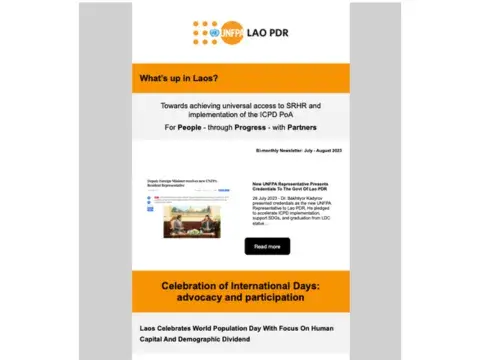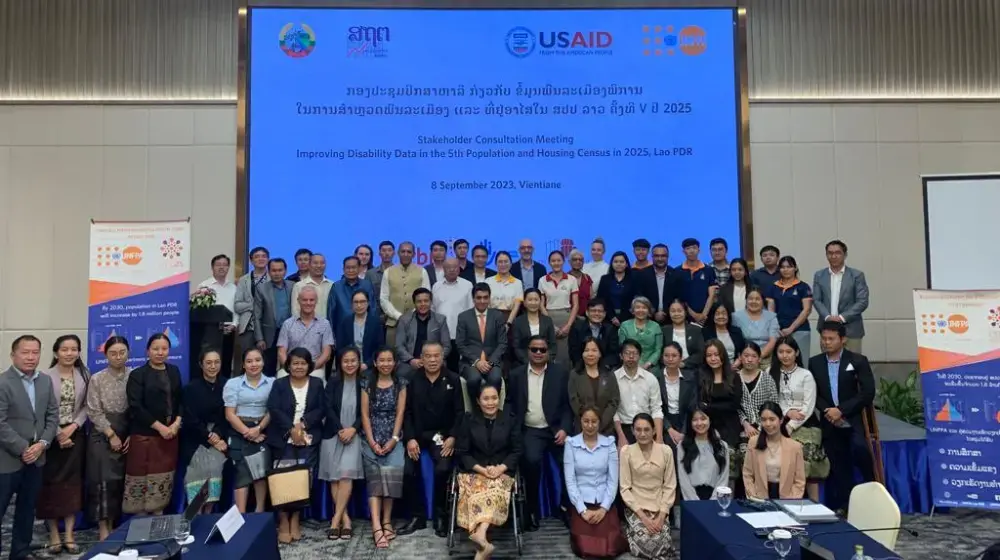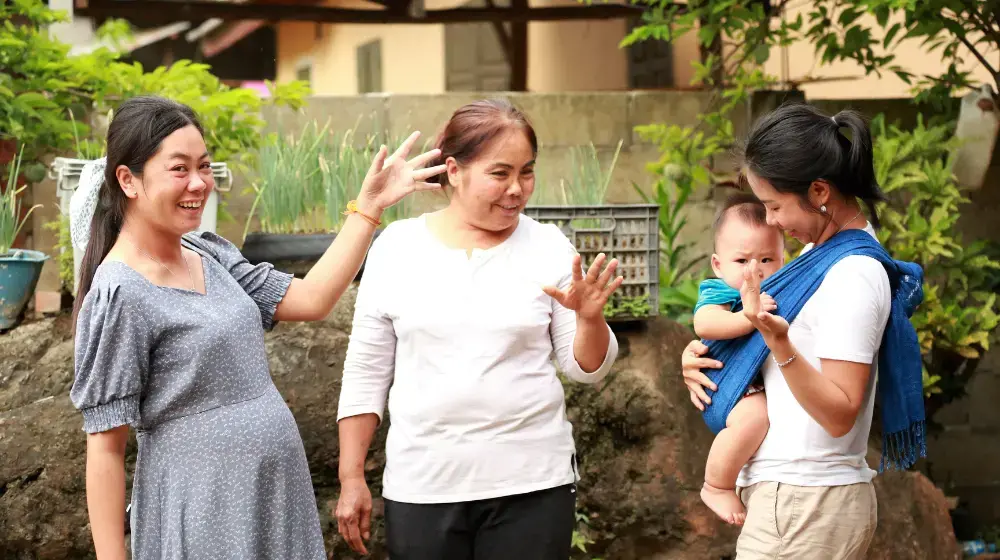“My mother delivered my brother on the road as a premature baby at the age of 17 years. They both suffered severe complications. This is still an everyday reality in Phongsaly. I want to change this,” said Phailine, a 21-year-old aspiring midwife.
Phailine’s mother got married at 13 and gave birth to her just two years later. Her mother was again pregnant at the age of 17. In the seventh month of her pregnancy, she felt severe pain in her abdomen. She went to the nearest hospital, but she could not find any doctor, nurse, or midwife. She could not do anything but walk home in pain. On the road, she delivered a premature baby without any assistance. Her mother and the baby survived, but they both had to live with lifelong health problems.
Phongsaly Province sits in the northern corner of Lao PDR with an average altitude of 1400 meters above the sea level, it is the highest province in Lao PDR. At the same time, it has the lowest population density in the country. 60 per cent of inhabitants are in rural areas with a road and 21 per cent in rural areas without a road. According to the Ministry of Health, only 35 per cent pregnant women in Phongsaly Province received skilled attendance whilst giving birth. Maternal and newborn health coverage has been limited due to difficult mountainous terrain, poor road conditions and inadequate skilled health care personnel.
A wish to contribute to saving lives
Upon completion of higher secondary education, Phailine engaged in a few informal jobs to help her family which largely survives from farming. Soon she realised these random jobs would not make any difference to her family and her community. A life-changing opportunity was presented to her when she got admitted to the Higher Diploma of Midwifery Programme at the Vientiane Provincial Nursing School. She knew that this was her chance to make a difference by pursuing a career as a midwife.
Phailine’s personal commitment to become a midwife has made her strong in coping with many practical challenges she has encountered during her studies. To better understand the terminologies in English, she has to rely on internet-based tools to overcome language barriers. “These difficulties cannot stop me from becoming a midwife to safeguard the health of women and babies,” Phailine said. She is determined to return to her hometown to serve her local community after her graduation.
Every woman must have an assisted delivery with well-trained health care providers
With support from UNFPA, the Ministry of Health of Lao PDR, the International Confederation of Midwives and the Khon Kaen University of Thailand started to collaborate on improving midwifery education. The programme included revisions of the national midwifery curriculum, further training of midwifery teachers and the provision of scholarships to midwives from ethnic groups. Nursing schools in the country received support in expanding midwifery education to promising young people across the country. Phailine was among those who were able to study midwifery as a result of the expanded midwifery education programme.
"When trained midwives are deployed in hardest to reach communities and are supported with necessary tools and equipment, they can tackle the unfinished business of ending preventable maternal deaths,” said Mariam Khan, UNFPA Representative in Lao PDR. The most critical intervention for safe motherhood is to ensure the presence of a competent health professional with midwifery skills at every birth.
According to the most recent state of the International Day of the Midwife, Implementing quality midwifery services could prevent about two-thirds of maternal and infant mortality globally. A competent and educated midwife can provide 87 per cent of the essential care for women and newborns, and contribute to healthier families and communities.
In Lao PDR, there are 1,867 midwives currently enrolled in hospitals and health centres nationwide, in which 512 of them are from the ethnic communities. Furthermore, the Lao Association of Midwives was re-established to be functioning again to strengthen the skills of clinical midwives and build a strong cadre to support women. With UNFPA’s support, Lao PDR made significant progress in bringing down maternal mortality from 294 maternal deaths per 100,000 live births in 2010 to 197 in 2015. To reach the target of ending maternal death by 2030, the Government will continue to promote midwifery education with UNFPA’s support to ensure universal coverage of quality midwifery services, particularly among the most vulnerable communities.
For more information, please contact to laos.office@unfpa.org





